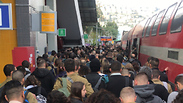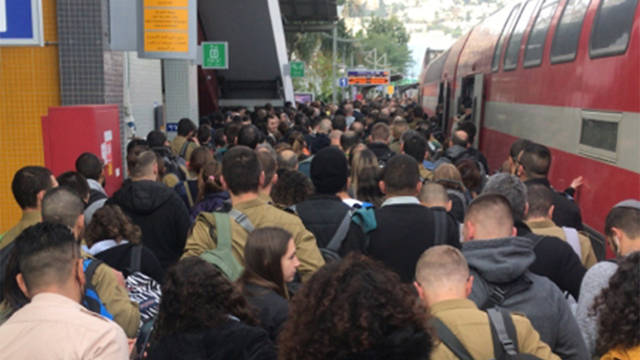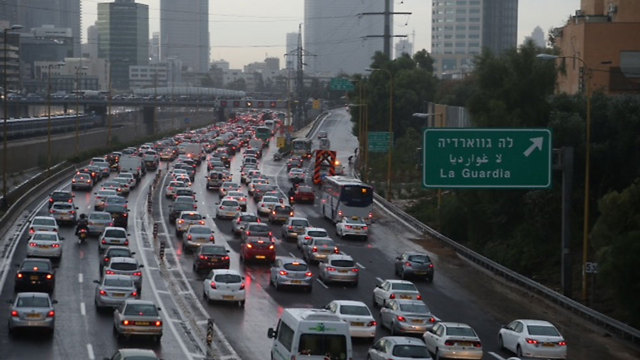Many politicians seeking to attract voters have recently cited the dismal state of public transportation in Israel in their campaign speeches. They readily promise to make changes that “will extract Israel from its traffic congestion,” but fail to elaborate on how they will actually achieve this miracle.
There is no doubt that under the term of current Transportation Minister Yisrael Katz, the country is undergoing a paradigm shift as the demand for more highways transforms into a deeper understanding that we can only get the kind of quality of life we want with an extensive and efficient public transit system.
That said, it is a pity that Katz, who has access to a substantial budget and enjoys plenty of political power, has not succeeded in providing a remedy and putting the country on the fast roads — roads plural, because there is no other solution, and diverse efforts must be made to provide all citizens with the ability to travel swiftly and reliably, in comfort and at an affordable price.
All citizens, not just those in the central region; not just for those commuting to work in the morning; not only for ostentatious projects that end in a celebratory ribbon cutting. The economy loses NIS 35 billion a year because of congestion, not only when we are on the way to work, but also when we are heading to schools, shops, leisure activities and more.
Today, 87% of public transportation passengers travel by bus. The world has long learnt that buses are the most flexible, cheapest (and often fastest) means of transportation— provided that they are enjoy the necessary infrastructure: designated lanes, bus stops at reasonable proximity to popular destinations (200 meters), and park and ride systems. Barring these conditions, passengers won’t use the bus.
Public transit is different than private vehicle travel in that it is part of a network, a system. A network must be created to provide various travel options. Therefore, it is not merely sufficient to add train lines —there must be viable secondary stations and transfer points with multiple transit lines.
The biggest change necessary is the shift to “combined planning for public transit.” In such a small state with short distances between destinations it is possible to develop an efficient and flexible public transit system to serve the public.
An efficient public transit system has a profound effect on the structure of society and it can change the status of whole sectors of the population: women who suffer from unequal employment opportunities, children and youth who depend on shuttles, and in fact all of us who suffer from the time wasted in traffic on the way to work or play.
Nevertheless, the right to public transit is not viewed as equal to other basic rights such as education and housing and the government fails to designate goals for public transit and plan accordingly; rather, only the needs of private vehicles are taken into consideration.
Therefore, in the coming elections, we ought to vote only for parties that commit to fundamentally change public transit policy in Israel; a change that integrates public transit throughout our lives and recognizes it as the cornerstone of a civilized society that pays heed to the needs of its population and plans accordingly, even for the 15 or 20 million people who will live here by the year 2048.
In the upcoming elections, vote for those who promise to fundamentally change the Transportation Ministry, increase its budget and utilize it for the benefit of us all.
Yael Dori is an urban planner and director of the planning department at the Israel Union for Environmental Defense (Adam Teva v’Din)



















